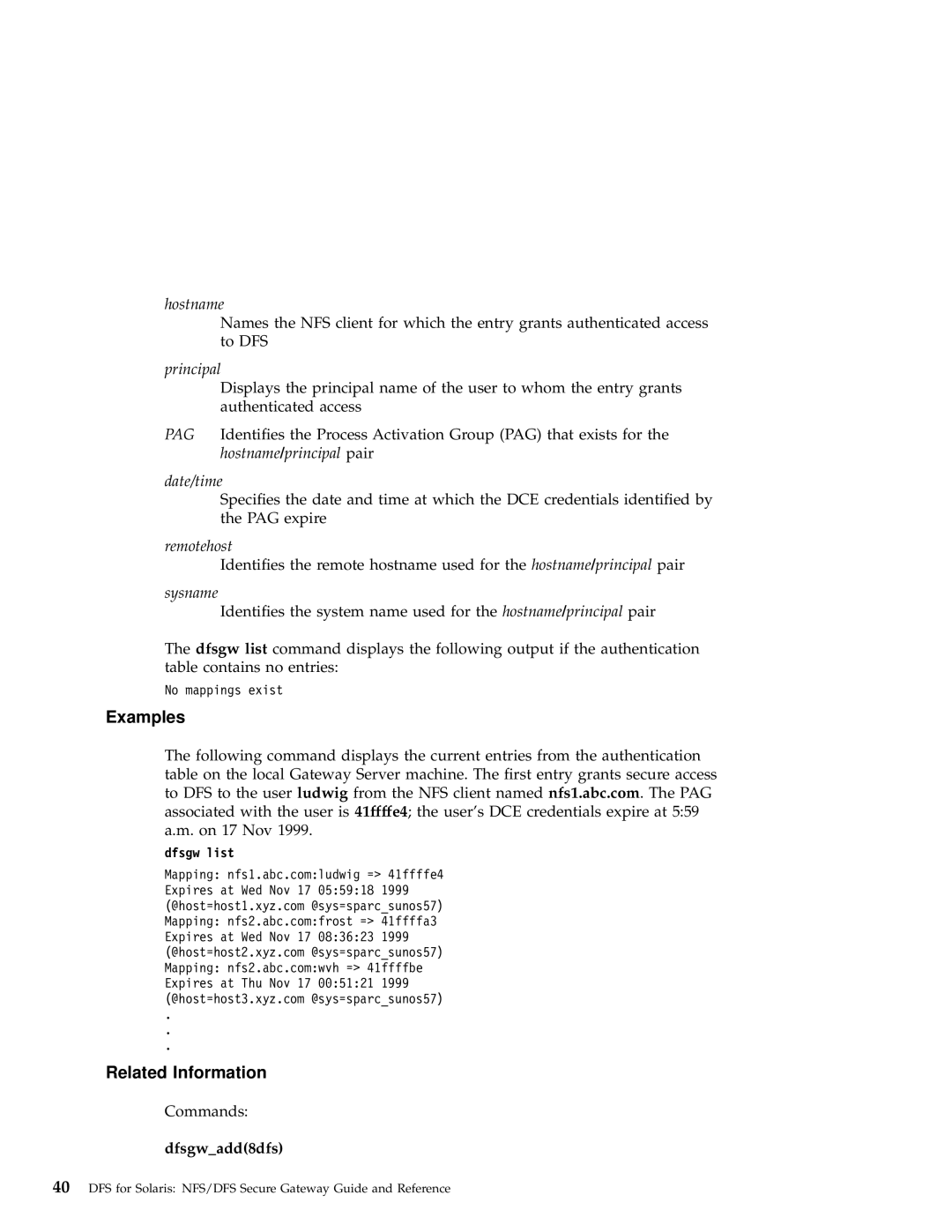hostname
Names the NFS client for which the entry grants authenticated access to DFS
principal
Displays the principal name of the user to whom the entry grants authenticated access
PAG Identifies the Process Activation Group (PAG) that exists for the hostname/principal pair
date/time
Specifies the date and time at which the DCE credentials identified by the PAG expire
remotehost
Identifies the remote hostname used for the hostname/principal pair
sysname
Identifies the system name used for the hostname/principal pair
The dfsgw list command displays the following output if the authentication table contains no entries:
No mappings exist
Examples
The following command displays the current entries from the authentication table on the local Gateway Server machine. The first entry grants secure access to DFS to the user ludwig from the NFS client named nfs1.abc.com. The PAG associated with the user is 41ffffe4; the user’s DCE credentials expire at 5:59 a.m. on 17 Nov 1999.
dfsgw list
Mapping: nfs1.abc.com:ludwig => 41ffffe4 Expires at Wed Nov 17 05:59:18 1999 (@host=host1.xyz.com @sys=sparc_sunos57) Mapping: nfs2.abc.com:frost => 41ffffa3 Expires at Wed Nov 17 08:36:23 1999 (@host=host2.xyz.com @sys=sparc_sunos57) Mapping: nfs2.abc.com:wvh => 41ffffbe Expires at Thu Nov 17 00:51:21 1999 (@host=host3.xyz.com @sys=sparc_sunos57)
.
.
.
Related Information
Commands:
